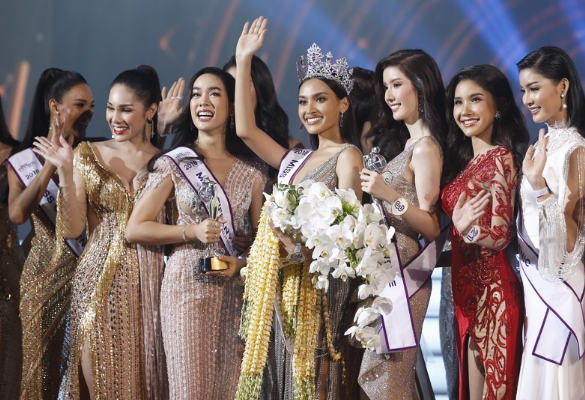
Thailand is known for its vibrant culture and rich history, including its acceptance and celebration of transgender individuals. In Thailand, transgender people are known as "kathoey," which is often translated as "ladyboy." The history and culture of transgender individuals in Thailand is complex and multifaceted, shaped by both traditional beliefs and modern influences.
Historically, transgender individuals in Thailand have been regarded as having a special spiritual significance. In Thai folklore, there are many stories about kathoey, who are often portrayed as divine beings or powerful spirits. This belief in the spiritual significance of transgender individuals has helped to create a more accepting attitude towards them in Thai society.
In Thai culture, gender is seen as more fluid and flexible than in Western cultures. Traditional Thai beliefs recognize a third gender, which includes not only transgender individuals, but also those who do not conform to traditional male or female gender roles. This third gender is called "phet thi sam" in Thai, which means "third sex."
Transgender individuals in Thailand have long been visible in popular culture, including movies, television shows, and music. In the 1950s and 1960s, Thai movies often featured kathoey characters, who were often portrayed in a sympathetic light. These movies helped to create a more positive image of transgender individuals in Thai society.
In the 1970s and 1980s, Thai pop music became popular throughout Southeast Asia. Many of the most popular performers were kathoey, including the famous singer Yollada "Nok" Suanyot, who was one of the first transgender celebrities in Thailand. These performers helped to further raise awareness and acceptance of transgender individuals in Thai society.
Today, transgender individuals in Thailand continue to be an important part of the country's culture and society. They are often visible in the entertainment industry, as well as in other areas of public life. Many kathoey individuals work in the beauty and fashion industries, where their skills in makeup and styling are highly valued.
Despite the cultural acceptance of transgender individuals in Thailand, they still face many challenges in their daily lives. Discrimination and violence against transgender individuals is a persistent problem in Thailand, as it is in many other parts of the world. Many transgender individuals also face barriers to education and employment, which can make it difficult for them to achieve financial stability and independence.
In recent years, there have been some positive developments for transgender individuals in Thailand. In 2015, the Ministry of Public Health announced that it would provide free gender reassignment surgery for transgender individuals who could not afford it. This was a significant step towards ensuring that transgender individuals have access to the healthcare they need.
In conclusion, the history and culture of transgender individuals in Thailand is complex and multifaceted, shaped by both traditional beliefs and modern influences. Transgender individuals have long been an important part of Thai society, and their contributions to popular culture have helped to create a more accepting attitude towards them. However, they still face many challenges in their daily lives, including discrimination and violence. It is important for Thai society to continue working towards greater acceptance and equality for all individuals, regardless of their gender identity.
이 포스팅은 쿠팡 파트너스 활동의 일환으로, 이에 따른 일정액의 수수료를 제공받습니다
'Thailand traveling' 카테고리의 다른 글
| 5 most used expressions when traveling in Thailand (0) | 2023.05.08 |
|---|---|
| Information on how to get to Wat Arun, etiquette, etc (0) | 2023.05.06 |
| Bangkok subway MRT, BTS (0) | 2023.05.05 |
| Getting from Don Mueang Airport to Downtown Bangkok (0) | 2023.05.04 |
| How to get to Don Mueang Airport from downtown Bangkok (0) | 2023.05.04 |



